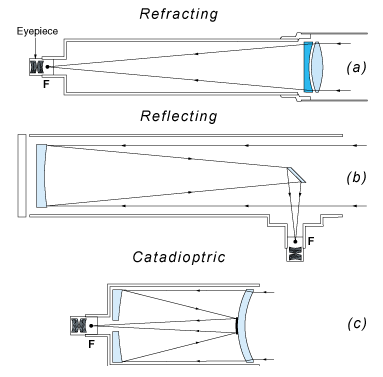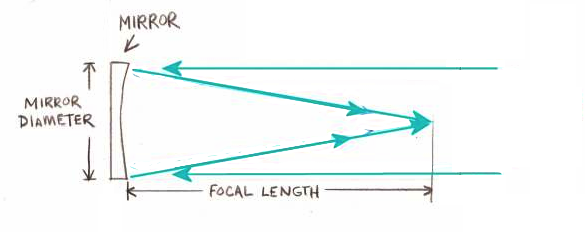Equipment Library
The Seattle Astronomical Society maintains a library of small and medium size telescopes that may be checked out by members in good standing. If you are new to astronomy, this is an excellent way to learn how to use a telescope and to begin viewing the wonders of the night sky, without having to invest immediately in a telescope of your own. To check out a telescope, please check out our equipment available for loan.
If you have any questions about borrowing equipment, or do not see a specific piece of equipment please reach out to our Equipment Manager.
See the complete equipment list in alphabetical order.
Keywords
You can narrow your search of our equipment library by selecting any one of the below keywords.
Astrophotography Beginner Binoculars Camera Imaging Intermediate Maksutov Newtonian Refractor Schmidt Cassegrain Visual
Search
All our equipment is currently on loan to other members.
Available Eventually
The following list of equipment is currently loaned out to a member, and may include other members waiting to also borrow.
-
AWB 130mm Reflector

Currently there are 3 requests to borrow this.
Table Top f/5 Newtonian Telescope.
NOTE: This scope does not include a tripod and is designed to be placed on a small table or similar support. It has an open tube and must be shielded from nearby streetlight or porch lights.
This telescope is suitable for all ages and is a good choice for viewing the moon, planets, and bright deep sky objects. It has a Dobsonian style mounting that is compact and intuitive to use. It is designed to be placed on a small table or similar support and does not come with a tripod.. A red-dot reflex sight and a set of eyepieces are included..
-
Celestron Echelon 16x70 Binoculars

Currently there are 4 requests to borrow this.
High Power Astronomy Binoculars
Large-aperture astronomical binoculars are intended for wide angle viewing star clusters, nebula, and galaxies, but will also provide nice views of our Moon and Jupiter with it's four Galelian moons. These 70mm binoculars are heavy and an Orion parallelogram binocular mount and tripod is included. 16x magnification is sufficient to provide nice views of many deep sky objects, such as the Andromeda Galaxy (M31),, the Orion Nebula (M42), and the Great Globular Cluster in Hercules (M13). It will not show Saturn's ring (about 30 power is required to reveal this detail).
-
Celestron NexStar 4 SE

Currently there are 4 requests to borrow this.
102mm (4 inch) aperture f/13 Maksutov-Cassegrain.
The NexStar 4 SE is a computerized - GoTo telescope that uses Celestron's user-friendly NexStar software to point the telescope to the scope to the desired object.
-
Dobsonian 8" Orion SkyQuest XT8

Currently there are 5 requests to borrow this.
8" Newtonian Reflector on Dobsonain Mount.
-
Edmund Astroscan

Currently there are 1 requests to borrow this.
Table Top Newtonian Telescope
Note: This scope has a small collimation error but it works well up to about 30x for wide field viewing.
The Astroscan telescope is suitable for all ages. The package includes the telescope, a red circle refles sight (Rigel Quik Point) for aiming the scope, a cast-aluminum tabletop base that's padded to prevent scratches on sensitive surfaces, a user's manual, two eyepieces, and a carrying bag. The telescope is intended to be placed on a table and does not include a tripod.
The Astroscan has a focal length of 445mm and makes a great "grab and go" scope requiring virtually no setup. It is a good telescope to use with children. Unfortunately the telescope is slightly but permanently out of collimation and is not suitable for high power viewing, but it works well with the provided low power eyepieces. A 16x eyepiece provides a three degree angle true field of view. A 26x eyepiece is also provided. The Astroscan provides good views of large star clusters and nebula, such as the Double Cluster, the Andromeda galaxy, and the Great Nebula in Orion complex, all of which can be seen from the suburbs of Seattle. It will show Jupiter and it's moons but 26x magnification is not enough to resolve Saturn's ring system.
-
Orion 80mm ED Refractor

Currently there are 6 requests to borrow this.
High Quality 80mm Refractor.
The Orion 80ED is a small, general purpose refractor telescope that will give sharp images of the moon and planets as well as the brighter star clusters and galaxies. ED glass improves the image contrast compared to a traditional acromat. The Twilight I Alt-Az mount is easy intuitive to use.
All our equipment is in good condition!
Telescope Types

What are those numbers?

The f-ratio is the focal length divided by the diameter of the telescope. Magnification is the focal length of the telescope divided by the focal length of the eyepiece.
Example
To find the f-ratio of a telescope 10 " in diameter with a 45" focal length:
Divide 45 " F.L. by10" D. to get an f-ratio of 4.5.
Compute Magnification
First, convert focal length to mm: 45" = 1146 mm, then:
1146 mm focal length divided by 35 mm eyepiece equals 33 magnification.
More Information
If you are interested in learning more about telescopes, we recommend:
- SAS member Sorin (aka Soggy Astronomer ) has written an article, The Agony of Buying Your First Telescope and also presented at our May 15, 2013 general meeting, which includes additional information and links.
- Sky & Telescope's excellent article on equipment basics
- North Ireland's Choosing A Telescope by Andrew Johnston





